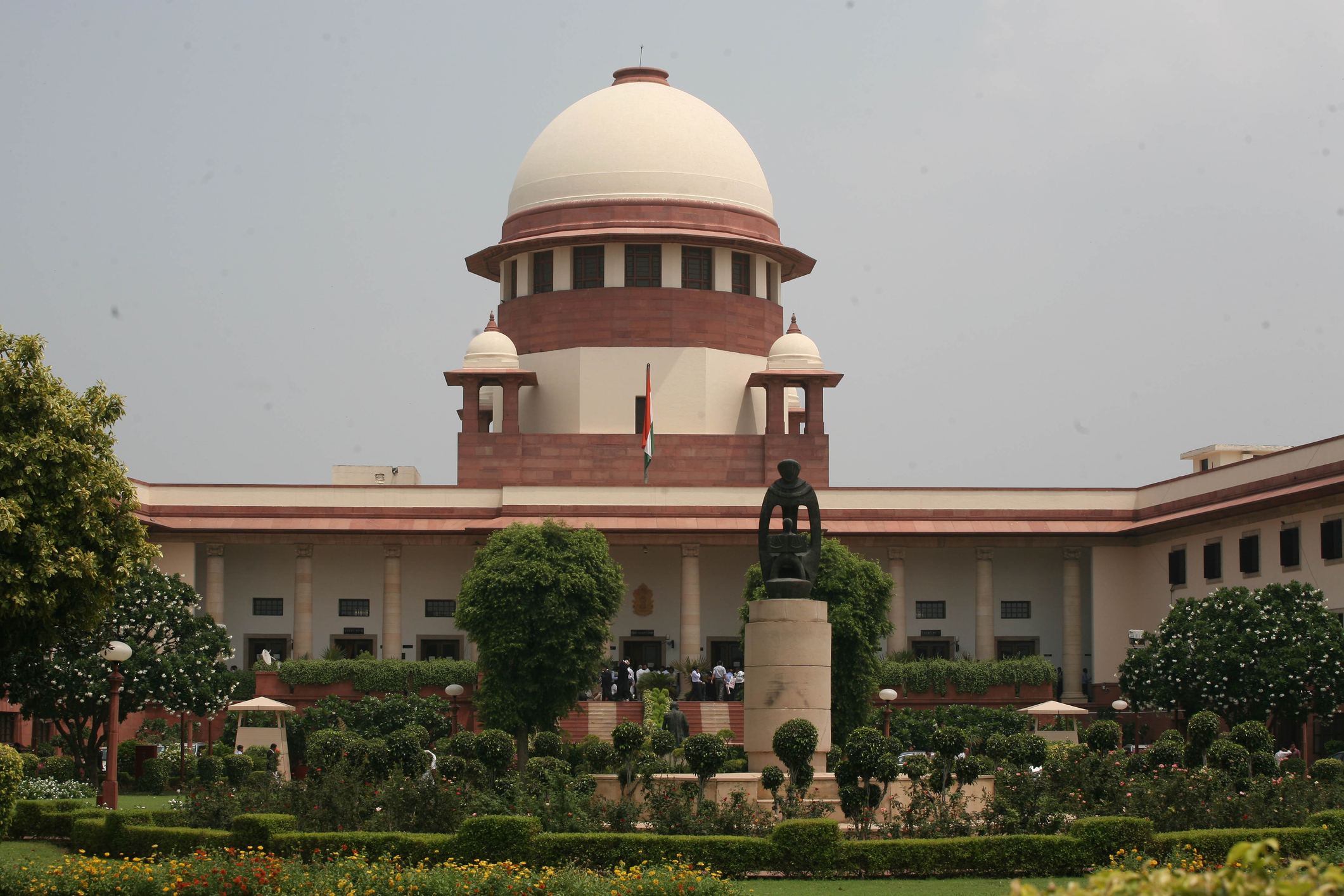The Akhil Bharat Hindu Mahasabha on Monday petitioned the Supreme Court against its award of a five-acre plot, somewhere in Ayodhya, to the All India Sunni Wakf Board to build a mosque as an alternative to the demolished Babri Masjid.
The Hindu Mahasabha is a Right-wing Hindu nationalist organisation to which Nathuram Godse, the assassin of Mahatma Gandhi, and some of his alleged co-conspirators were linked.
It has argued that the demolished Babri Masjid could not be considered a mosque and therefore the Muslims do not need to be compensated with an alternative plot.
This is the first review petition from any Hindu group against the November 9 judgment by a five-judge constitution bench that allotted the disputed 2.77 acres to Hindus to build a Ram temple while asking the Uttar Pradesh and central governments to provide the Muslims an alternative plot.
So far, seven review petitions have been moved — by the All India Muslim Personal Law Board and other Muslim groups or individuals — challenging the handover over the disputed plot to the Hindus. The apex court is yet to fix a date for hearing the batch of review petitions.
The Hindu Mahasabha has contended that the erstwhile Muslim rulers had seized the disputed site and built a mosque there by sheer use of might, which does not give their community any legal right over the land.
“Since it is clear that the construction, i.e. alleged mosque, was constructed at the place of worship of Hindus taking advantage of the situation, the members of Muslim community cannot assert right to religion at the said place and they cannot be awarded for the wrong committed by them at any point of time in the past,” the petition, filed through advocate Vishnu Shankar Jain, says.
“Even if it is found that after 1856-57 the Muslims started prayers in the inner courtyard occasionally or on Fridays, (it) will not alter the position and they cannot be given benefit for such illegal act.
“Their action is in gross violation of the principles of secularism as they tried to usurp sacred land and the place of worship of Hindus. Those who have trampled (on) the religious place of Hindus cannot be given (a) prize for such illegal action and they cannot be allotted 5 acres of land to console them on the ground that Hindus have committed some wrong in 1934, 1949 and in 1992.
“Actually, it was the anxiety of the Hindu community to liberate Shri Ram Janmabhumi and it was their plight to get justice from the historical wrong.”
According to the Mahasabha, the court had found that Hindus had been worshipping under the three-domed structure from ancient times, considering it Ram’s birthplace, and yet chose to allot five acres to the Muslims on the premise that their mosque was demolished at the site.
“At the same time the hon’ble court, without any evidence or material on record, has termed the structure as (a) mosque simply on the basis that in the plaint, Muslims have alleged that a mosque ha(d) been constructed by and under the orders of Babar in 1528,” the petition says.
“In Suit No. 5, (the) plaintiff has also pleaded that the mosque was made by Mir Baqui, a commander of Babar(’s) army, and in para 68 it has been held that there was essentially no dispute about the fact that the mosque was raised in 1528 AD by or at the behest of Babar.
“It is clear that (a) Hindu religious structure was there and at the same place the construction of the disputed structure was raised. Therefore, the property belongs to Hindu deity and no construction at the property or religious place of Hindus can be raised by a person of another faith.
“It is undisputed that the property once vested in the deity continues to vest in Him; it is never destroyed or finished and, after (the) lifting of obstacles (and any) hindrance the deities (sic) property rever(ts) back to the deity and puja, worship may be continued. This legal position has also been affirmed by the hon’ble court.
“In view of the above, there would be no justification (for) term(ing) the structure in question as (a) mosque or (the) Babri mosque.”











